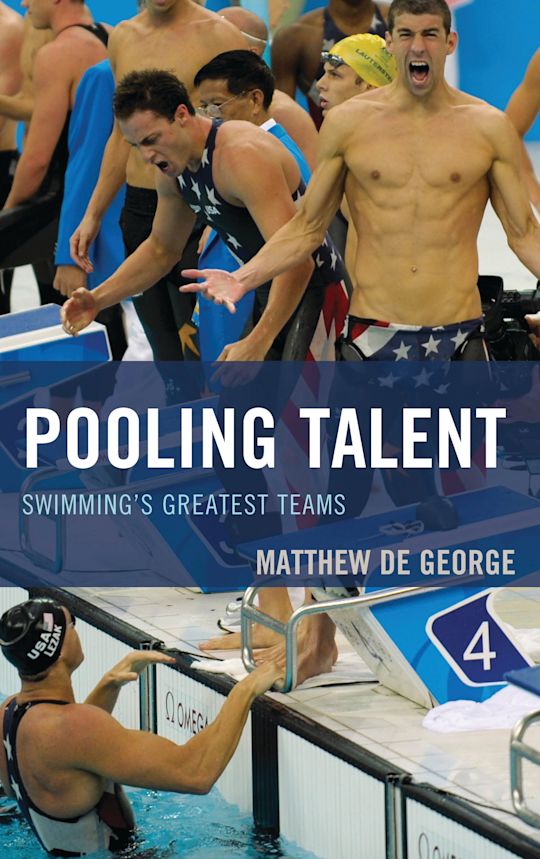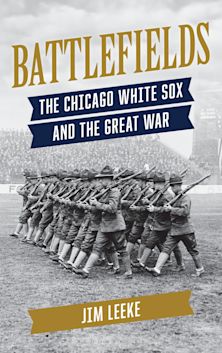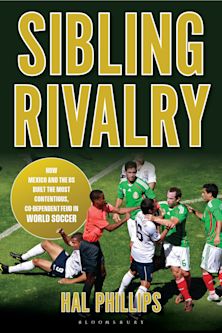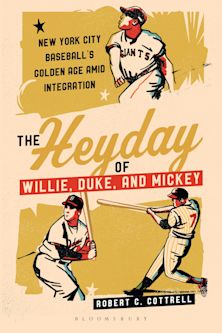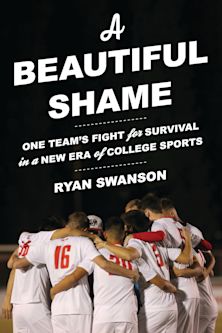- Home
- ACADEMIC
- Sport, Exercise & Games
- Pooling Talent
This product is usually dispatched within 1 week
- Delivery and returns info
-
Free US delivery on orders $35 or over
You must sign in to add this item to your wishlist. Please sign in or create an account
Description
Swimming is primarily an individual endeavor, yet certain accomplishments, even by some of the most illustrious names in the sport, can only be fully appreciated when considered alongside the contributions of their teammates. After all, Michael Phelps would never have earned a record eight gold medals in the 2008 Olympics were it not for his teammates’ world record-setting efforts in the 400 freestyle relay.
In Pooling Talent: Swimming’s Greatest Teams, Matthew De George highlights the top relay teams, squads, and programs in the history of competitive swimming. Each chapter describes in detail the history surrounding the team, the crucial races, and the key swimmers. Part I examines relay teams—such as the 1976 U.S. Women’s 400 Freestyle, the 2000 Australian Men’s Freestyle, and the 2004 U.S. Men’s Medley—showcasing how four opponents in the individual events can mesh seamlessly into a team. Part II explores the national squads, spanning from the 1924 U.S. Olympians to the 2001 World’s Australians, revealing the interplay between team and individual success. In Part III, the top developmental programs around the world are featured, including the 1930 Japanese Men’s program and the North Baltimore Aquatic Club. Together, the relay teams, squads, and programs provide constant motivation, pushing individuals to achieve much more than they ever could in isolation.
Extensively researched and rich in detail, Pooling Talent takes a novel look at swimming accomplishments old and new, casting the accolades of individuals in a fresh light. Fans, coaches, athletes, and researchers alike will find this a unique and refreshing history of swimming’s greatest teams.
Table of Contents
Introduction
I. Relays
1. 1976 U.S. Women’s 400 Freestyle
2. 984 U.S. Men’s 800 Freestyle
3. 2000 Australian Men’s Freestyle
4. 2000 U.S. Women’s Medley
5. 2004 U.S. Men’s Medley
6. 2004 South Africa Men’s 400 Freestyle
7. 2008 U.S. Men’s 400 Freestyle
8. 2012 France Men’s 400 Freestyle
II. Squads
9. 1924 U.S. Olympians
10. 1950s Hungarian Women’s Olympians
11. 1968 U.S. Olympians
12. 1973 East German Women’s World Championship
13. 1976 U.S. Men’s Olympians
14. 1980 U.S. Olympians
15. 1992 Unified Olympians
16. 2001 Worlds Australians
III. Programs
17. 1930s Japanese Men
18. 1950s Australians
19. Indiana University Men
20. Mission Viejo Nadadores
21. Stanford University Women
22. University of Texas Men
23. North Baltimore Aquatic Club
24. U.S. Men’s Backstroke
Index
About the Author
Product details
| Published | Jul 02 2014 |
|---|---|
| Format | Hardback |
| Edition | 1st |
| Extent | 310 |
| ISBN | 9781442237018 |
| Imprint | Rowman & Littlefield |
| Dimensions | 9 x 6 inches |
| Series | Rowman & Littlefield Swimming Series |
| Publisher | Bloomsbury Publishing |
About the contributors
Reviews
-
This volume covers everything a reader might want to know about the great swim teams since the modern Olympics started, in 1896. The emphasis here is on Olympic swim teams but also includes other events as well. Author De George does a good job of presenting the historical context surrounding these events, such as the East German women’s swim team doping scandals in the 1960s and ’70s, as well as in depth descriptions of each person’s individual contributions to swim-team events. Each chapter describes the history of a particular team, important races, and key swimmers. This is an excellent introduction to the sport of team swimming for interested teens and adults alike.
Booklist
-
Pooling Talent: Swimming's Greatest Teams, by sports writer and author Matthew De George, examines relay teams, national squads, and top developmental programs and how these three levels of swimming impact the athletes involved. This highly readable book, part of Rowman & Littlefield's Swimming Series, can be used as a reference or read from cover to cover. Part one, Relays, has individual chapters on several winning teams, including the 1976 U.S. women's freestyle team, the 2000 Australian freestyle team, the 2004 U.S. men's medley team, the 2004 South African men's 400 freestyle team, and the 2012 French men's 400 freestyle team. The team stories are told within the context of Olympic history, national and international relationships, Cold War tensions, performance-enhancing drug use, and more. Part two focuses on different national squads and serves as a history of swimming development over the course of the twentieth century, starting with the 1925 U.S. Olympic swimmers, and discussing such teams and events as the 1950's Hungarian women's Olympians, the 1968 U.S. Olympians, the 1973 East German Women's World Championships, the 1976 men's Olympians, the 1980 U.S. Olympians (thwarted by the U.S. boycott of the games that year), the 1992 Unified Olympians, and the 2001 Australian World Championships. Part three focuses on the successful developmental programs that have produced some of the sport's leading talent, including the Stanford University women under the guidance of Coach Richard Quick, the 1930's Japanese men's team, and the Mission Viejo Nadadores.
American Reference Books Annual









